In response to the COVID-19 crisis, the Digital Stage initiative emerged as a salient example of how artistic research is able to shape technology development, in order to facilitate an artistic appropriation of digital space. When artistic groups and ensembles could no longer rehearse and perform together due to the pandemic, the hackathon WIRvsVIRUS in March 2020 brought up the idea of a digital system that would allow professionals as well as amateurs to continue their work in acting, performance, dance and music under the lockdown conditions. With funding at the German federal / state level and support from cooperation partners, the !KF – Institute for Artistic Research Berlin and the German Center of the International Theatre Institute (ITI) founded the initiative Digitale Bühne, digital-stage.org, to develop and distribute a low-latency 3D audiovisual system. This was based on existing open source solutions, first and foremost the groundbreaking ovbox by Giso Grimm for the ensemble ORLANDOviols (orlandoviols.com). With its high-end sound quality and fast signal transmission, the different solutions of Digital Stage create virtual spaces in which groups and ensembles can rehearse and perform together online, from different physical locations. Intertwining artistic research and technology development, the project advances digitization in art and culture by enabling new concepts, forms of practice, and formats for an artistic adaptation and designing of the digital space that goes far beyond the original motif of the COVID-19 situation. From the outset, the Digital Stage was a non-profit project that firmly supports the idea of connectedness and solidarity. Its low-threshold usability brings the new infrastructure to the citizens and enables everyone, professionals and amateurs alike, to co-create a vast variety of digital artistic opportunities. In 2020, the ovbox (as of April) and digital-stage-web (as of June) were available in earlier versions, which have since been further developed in a nationwide partner network along three lines: Rehearsal and Performance, Education and Teaching, 3D Audio and Virtual Scenography. In January 2021 the project was handed over to the specially founded Digitale Bühne gemeinnützige GmbH (charitable company) to secure the non-commercial character of the initiative for the future. This article outlines the development and working areas of the Digital Stage, inviting readers to join the network, explore the new technology, and artistically co-create its capabilities – it is meant as a call for artistic action.
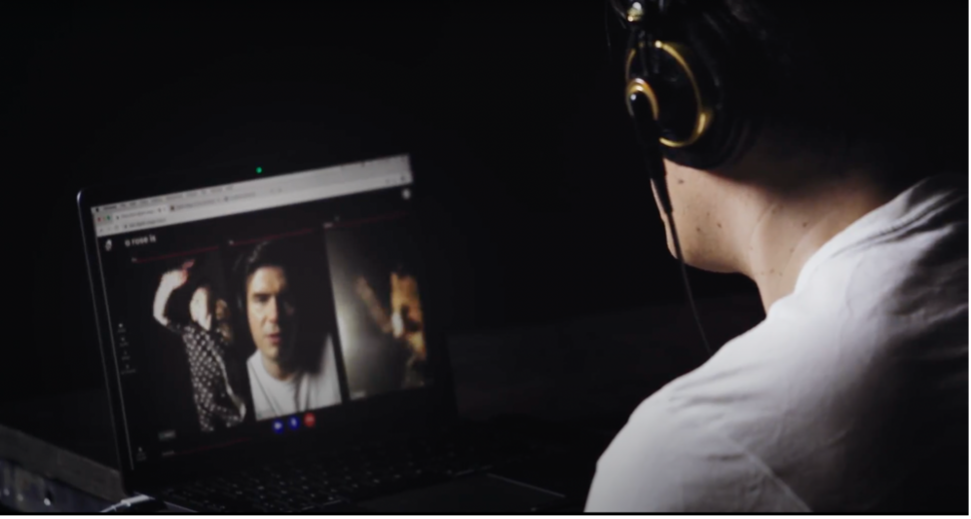
The Digital Stage emerges: From the idea to a fully functional hard- and software based performative space
The large-scale hackathon WIRvsVIRUS, organized by the German government as the first national COVID-19 lockdown started, tapped into the creative potential of the civil society and sparked, inter alia, the idea of a digital space in which professionals and amateurs in acting, performing, dance, and music could continue to rehearse and to perform. The !KF Berlin, the International Theatre Institute Germany, and later, centrally, Digitale Bühne gGmbH took up the challenge to distribute and further develop groundbreaking low-latency 3D audiovisual systems, based on existing open source solutions. They create virtual sound spaces in which individual participants are heard at distributed locations, that can be variably assigned to them via the software control. The different audio systems are all combined with the video system Mediasoup.org, developed by Iñaki Baz Castillo and José Luis Millán, and thus enable groups and ensembles to rehearse and perform together online from different physical locations. The Digital Stage is developed in three versions: Digital-stage-ovbox is a Raspberry Pi hardware device that employs ORLANDOviols 3D audio technology, designed by Giso Grimm. Due to its minimal latency in audio signal transmission, it is ideally suited for music applications. Digital-stage-web is a browser-based solution, combining 3D-web-audio with video based on the WebRTC technology. As the audio latency is slightly higher in this solution, it is especially suitable for acting, performance and dance. Digital-stage-pc (a software solution for Windows and Macintosh computers) is a download app for larger groups that uses the JammerNetz technology, designed by Christof Ruch. All three versions shall further be integrated in one common system.
Since 2020, the ovbox and digital-stage-web are available in a first version, and have been further developed in an interdisciplinary network that consists of more than 70 institutions, including partners from arts, culture, education, technology and business. A large extent of artistic research on the creative work processes in acting, performance, dance, and music is incorporated into the Digital Stage technology development, in order to provide artistic users with the maximum support for unfolding their work in the digital space. The project’s artistic-technical research work takes up the structures of the arts, culture, and education sectors in order to learn about the needs and utopias of diverse user groups, to include them in the design of solutions, and to implement them in intense test phases. In this way, future opportunities are realized as concrete applications in teamwork. In parallel, a user-friendly support system is being created that includes the training of central multipliers in building digital competencies, and assists institutional partners in questions of application, mediation, and infrastructure. The project aims to develop the Digital Stage by March 2022 to the point where it can be made available via a digital platform as a low-threshold, stable, and trouble-free tool for online rehearsal, performance, and teaching. It will then also be possible to widely employ the new technology as an instrument for further artistic research in numerous working areas. Even if artistic research does not enter directly into the development of new technologies, its questioning, thinking and acting creates an open mindset in which solutions are easier to find. An example is the Dung Beetle Project from South Africa, where scenographer Pierre Fabritius invented a machine that transforms plastic waste into clean energy. Emerging from his research on performative spaces and embedded into the ambiance of the performing arts, the machine, that no professional engineer has come up with, offers a secondary solution to the plastic pandemic.
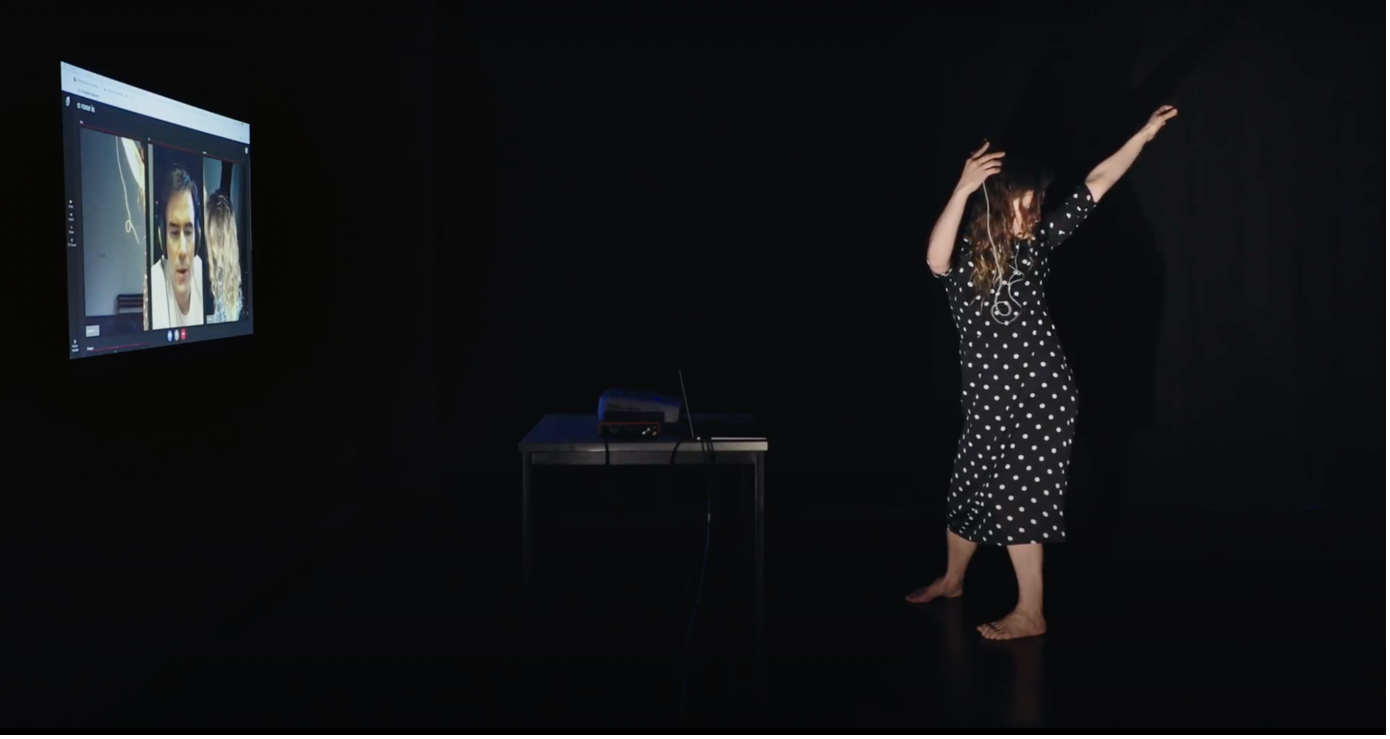
Rehearsal and performance
In the development partnerships the Digital Stage project entered within its initial working area of rehearsal and performance, the German state associations in arts and culture assume a central role: they pass on Digital Stages to their members as free of charge as possible. Digital Stage pilot projects include the cooperation with artistic state associations within the initiative of the Bavarian State Ministry for Science and Art to develop digital experimental spaces. Theater, performance, dance, and music ensembles and academies such as Ernst Busch Academy for Dramatic Arts in Berlin, the Hamburg Conservatory and Hamburg University for Music as well as universities and institutions in Austria, Switzerland and other European countries are also important development partners.
In its rehearsal and performance applications, the Digital Stage opens up new artistic ways of working in the digital space: across local, regional and national borders, it can bring together art and culture professionals and amateurs in new kinds of dialogue and co-creation. It brokers in the digital space, it can promote networking with distant partners and cooperation in supra-regional and international projects. Stakeholders in rural areas and people from socially marginalized groups can participate more easily in art and cultural production. Digital workshops or festivals with participants in different physical locations, such as the TOOLS festival, co-organized by the Digital Stage project in October 2021, become possible. On the receptive side, the Digital Stage can reach diverse and widely dispersed audiences and open up new social spaces. People in remote areas and social groups without access to cultural events and programs can be more easily involved. At all levels, the Digital Stage strives to enhance inclusion and participation in art and culture. The technological development of these concrete applications is driven and reflected by artistic research on the culture of analog and digital spaces, and conversely, it is itself a tool for fresh artistic research on the action and networking interaction in digital spaces. In the medium term, the Digital Stage shall also be available in the wider European area.
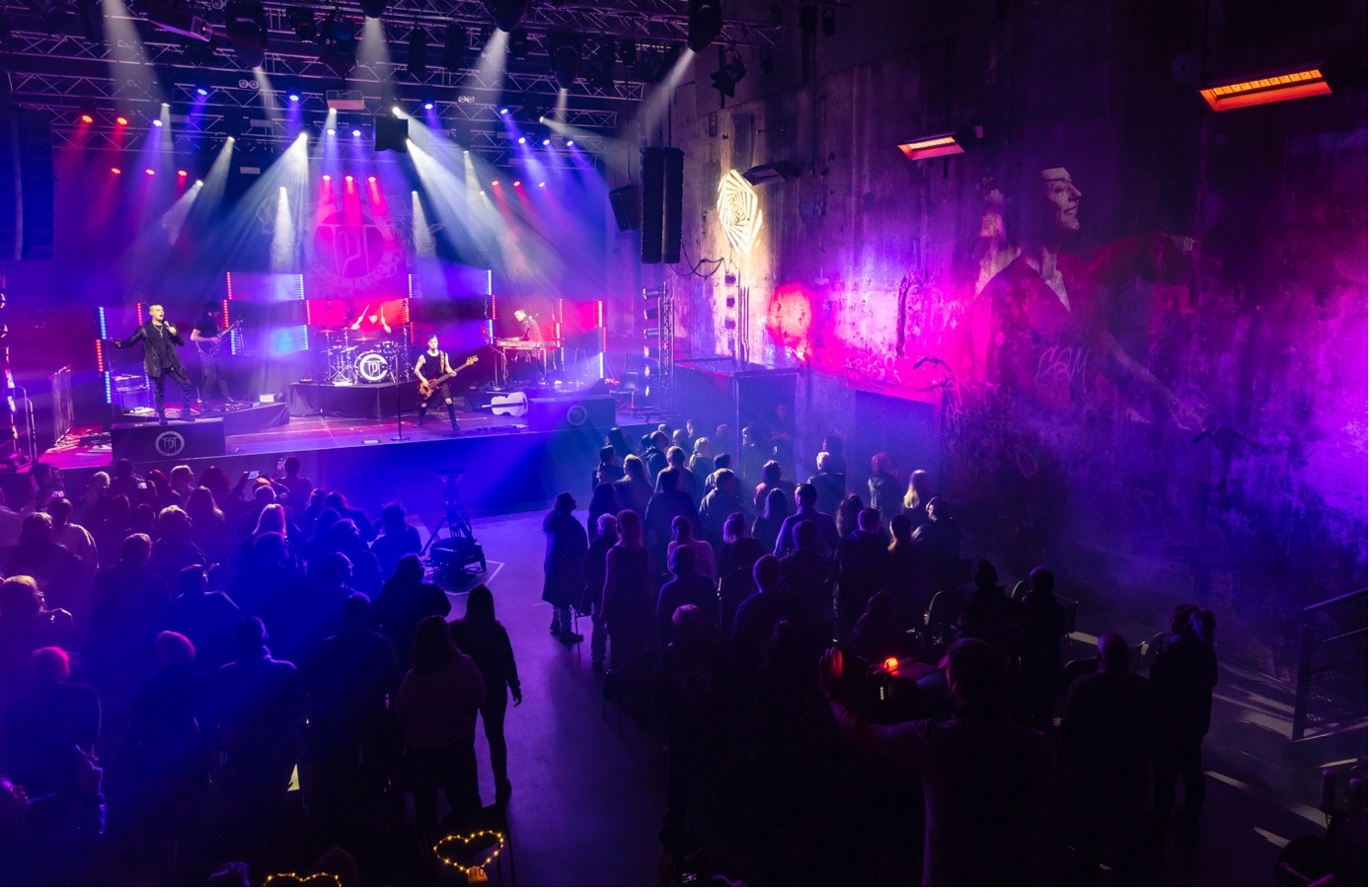
Education and teaching
In a medium-term perspective, the Digital Stage, combined with image transmission, can be used by schools and universities for the digital teaching of acting, singing and music. The artistic-technical research in this field of application is focused on forms and possibilities of interactive teaching that leave behind traditional models of frontal and linear education. Key development partners here are art, theater, film and music academies, pilot projects have already started with state Fanny Hensel Music College Berlin, Bremen University of the Arts, and University of Music and Theatre "Felix Mendelssohn Bartholdy" Leipzig. Especially in this latter collaboration, it became apparent that digital music lessons involve a different way to listen and to make music. In this context, too, the Digital Stage proves to be an instrument for a more advanced artistic exploration of basic coordinates in the music teaching situation.
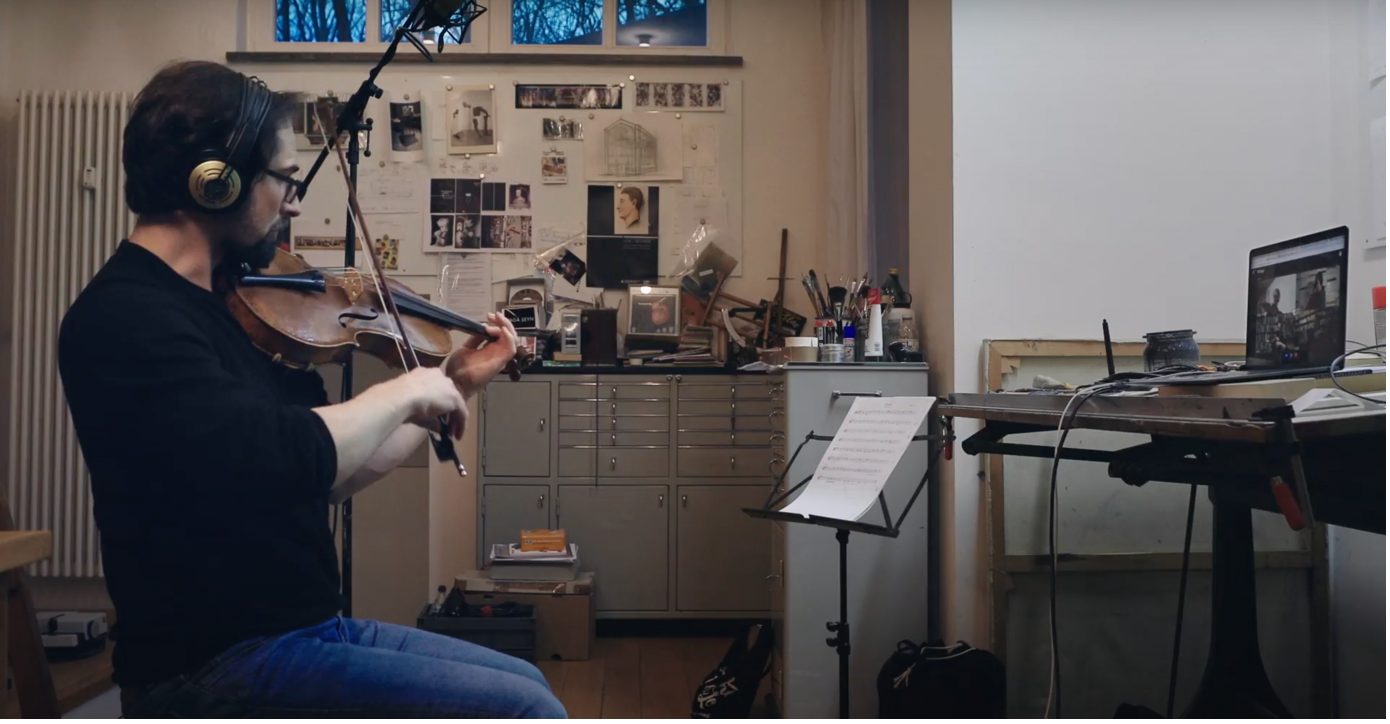
3D Audio and Virtual Scenography
Another field of collaboration is the long-term participation of the Digital Stage project in the experimental development of digital image spaces: In the interweaving of 3D audio and advanced image processes, virtual scenographies are created for acting, performance, dance and music formats such as choirs, opera or music theater. This opens up the opportunity for these art forms to not only be present on the web in hybrid formats with filmed stage sets, but to go online in a completely digital form. Artistic research into the design of digital sound and image spaces and into interaction with and within them is the basis of technology development here. Pilot projects, for instance with the Fraunhofer Institute and the Academy for Theatre and Digitality Dortmund, aim to integrate the 3D audio technology of the Digital Stage with visual processes of 360° filming, augmented and virtual reality into hybrid theater and event forms. Other collaboration partners in these prospective developments are Staatstheater Augsburg, Humboldt University Lab Berlin, and Zurich University of the Arts.
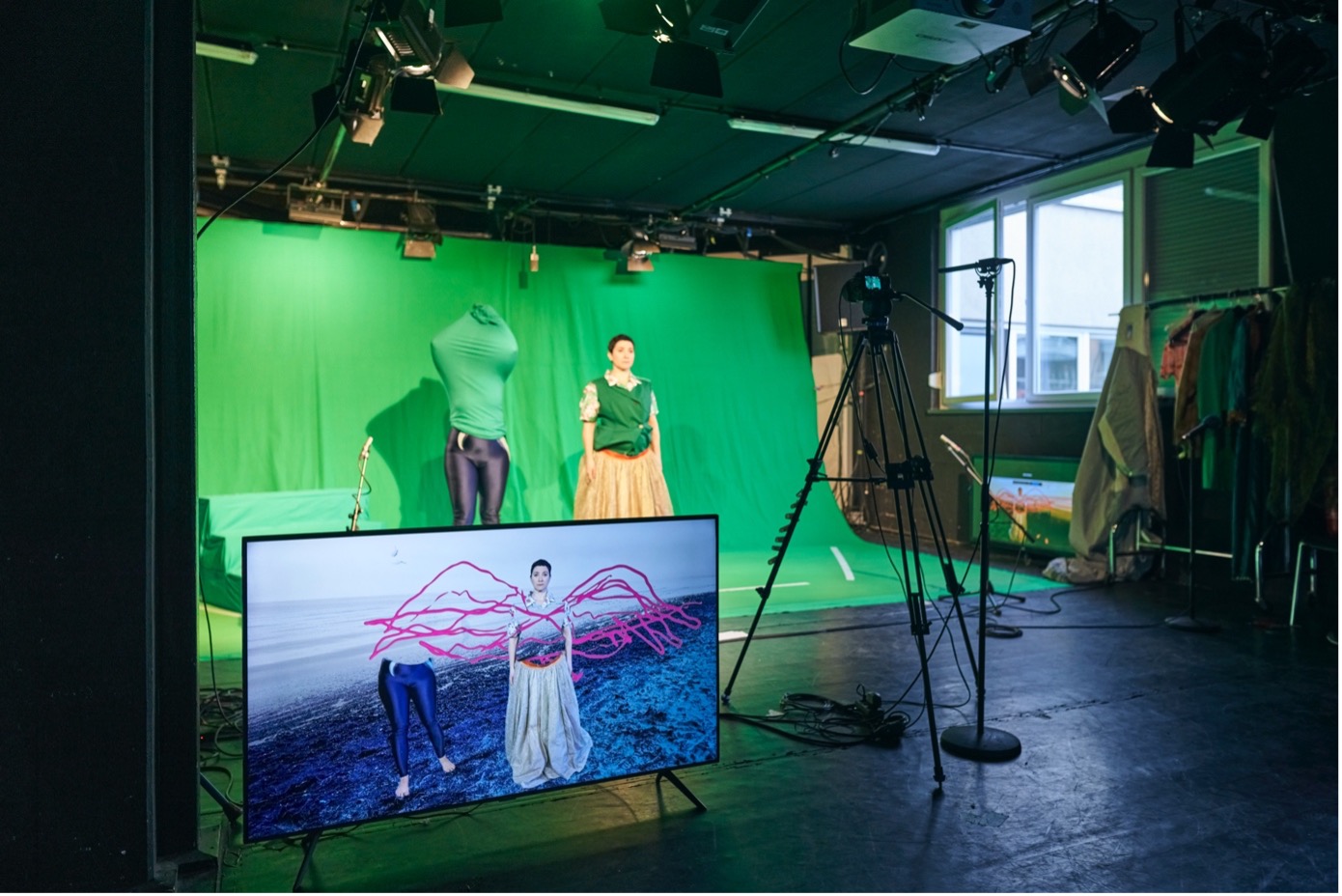
Digitization and Sustainability
On all three lines of its development, the Digital Stage initiative fosters ecological, economic and social sustainability, since on the one hand it reduces the need for mobility and travel, for rehearsal rooms and stage material, and, on the other, it increases inclusion and participation in cultural life. The collaboration with various user groups in the development phase guarantees a broad anchoring of the Digital Stage. Its introduction via the state associations increases the acceptance for the expansion of digital infrastructure in arts and culture. The easiness of use, the support system and the training in digital competences bring the Digital Stage to the citizens, and its non-profit nature lays the appropriation of its digital space in the hands of the people. Taken as a whole, the Digital Stage project is an example of how artistic research combined with technology development can contribute to a sustainable digital transformation. You are very welcome to participate.
Further information and contact: digital-stage.org
Biographies
Stefan Winter, philosopher and author, is Honorary Professor and Head of Institute for Artistic Research at Film University Babelsberg, and Visiting Professor at the Wits School of Architecture and Planning in Johannesburg. In his research and teaching at universities and art schools in Basel, Berlin, Braunschweig, Düsseldorf, Helsinki, Perugia and Potsdam, he traversed and connected artistic and scientific knowledge cultures. He has published widely on all epochs in the history of knowledge and on present-day questions across the disciplines.
Fee Altmann, art historian with a focus on contemporary, artistic practices in contemporary cultures at paradigmatic turning points; social and political practices of the arts and procedures of artistic research; transdisciplinarity. Board member and humanities director, Institute for Artistic Research (!KF), Berlin; managing director, Digitale Bühne gGmbH. Founding member of the Society for Artistic Research Germany, and representative for Brandenburg. Many years of experience in the international art market; until 2013 director of the foundation archive of the conceptual artist and philosopher Adrian Piper; since 2013 at the Institute for Artistic Research at the Film University Babelsberg KONRAD WOLF, where she was managing director until 2020.
Julian Klein,composer and theatre director, is head of !KF – Institute for Artistic Research Berlin, Germany ( artistic-research.de ) and peer review editor of JAR. He was founding president of the Society for Artistic Research in Germany (GKFD). He has been teaching directing at the University of Arts Berlin and artistic research at various universities, among them University Mozarteum Salzburg, Bauhaus University Weimar and was research fellow at Concordia University Montréal, University Leipzig and Free University Berlin.
